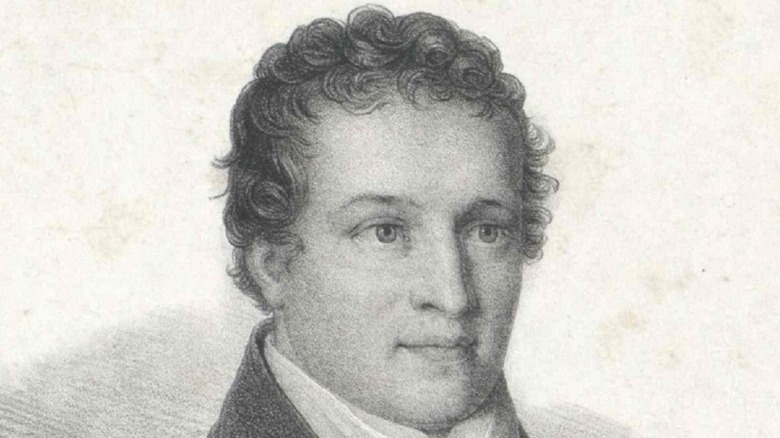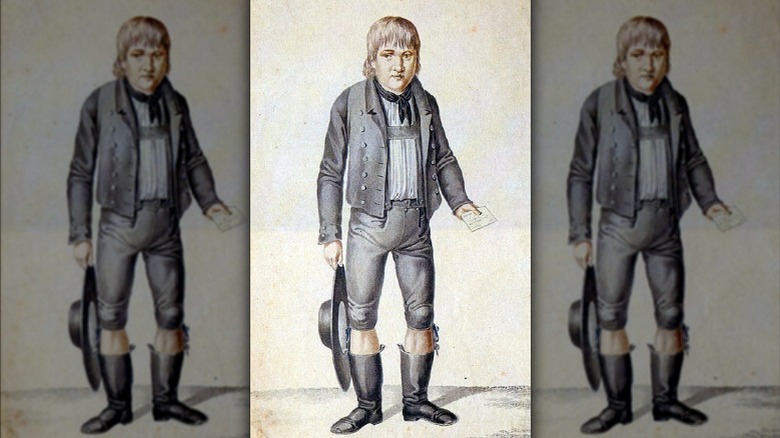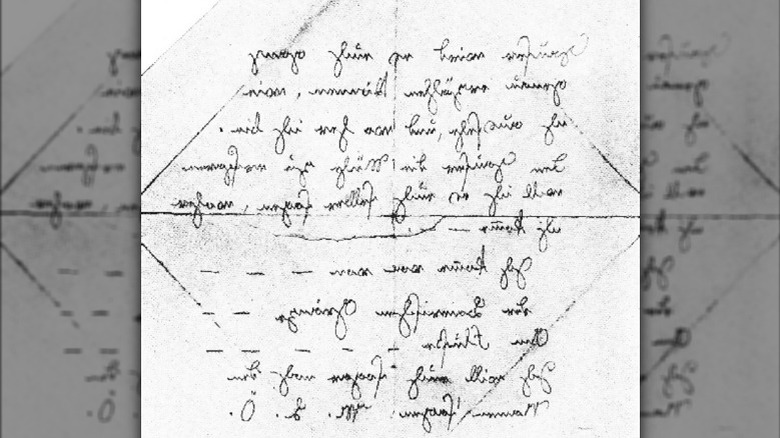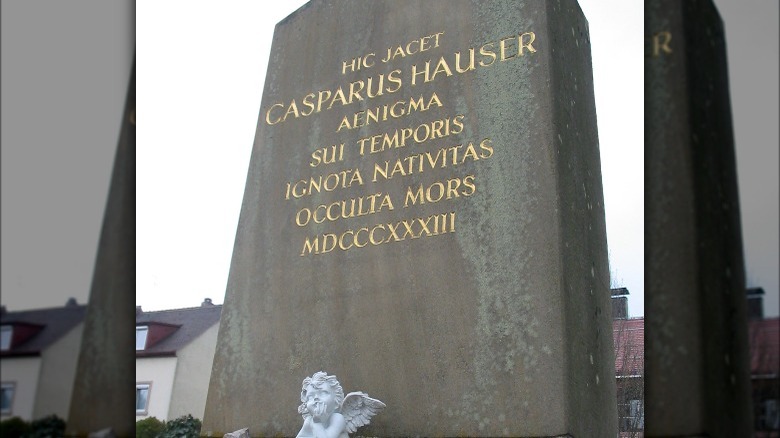The Unsolved Mystery Of Kaspar Hauser
The story of a young man named Kaspar Hauser is both bizarre and tragic. On the morning of May 26, 1828, a boy was found wandering in Nuremberg, Bavaria. He was dressed in a gray jacket with a necktie and pantaloons. On his feet were a pair of torn boots, and he also had with him a handkerchief with an embroidery of the initials "KH." According to ATI, authorities approached the boy, but he was only able to speak a few words. He handed them a note that was addressed to a cavalry captain — Captain von Wessenig — and in it, the writer said that the boy had been left in his care as an infant in 1812. It also noted that the boy wishes to be a cavalryman, just like his father, and for the captain to either take him under his wing or hang him (via Sophia Institute).
There was another letter attached, which was supposedly from the boy's mother. The writer said that the boy was named Kaspar, and he was born on April 30, 1812. His father — who was already dead — was a cavalryman of the 6th regiment. The boy was taken to the police station for further investigation, and there, he was able to write his name on a piece of paper: "Kaspar Hauser."
Kaspar Hauser's strange behavior
The police asked Kaspar Hauser basic questions, such as who his parents were or where he came from, but the boy claimed he didn't know. He was given sustenance but preferred to consume only bread and water despite being offered meat and vegetables. Those who observed him saw that he had no manners and had a limited vocabulary, but he often spoke about horses, as reported by ATI. He was amazed by regular things, such as the flame on a candle and his reflection in the mirror, which he attempted to grab. Since there were no other clues about Hauser's identity, he became a ward of the city.
A local schoolmaster named Georg Daumer taught Hauser how to read and write, and eventually, the boy was able to reveal a bit more about his background. He claimed that he was kept inside a cell by an unknown individual, who only gave him water and bread. The person allegedly taught him how to say, "I want to be a cavalryman, as my father was," which he memorized, per Everything Everywhere. He also had a blanket, as well as a few toys. On the day that he wandered into Nuremberg, he said that he was told to look at the ground and walk, and he was only given the letter before he was left to fend for himself.
Kaspar Hauser's mysterious death
About a year-and-a-half after arriving at Nuremberg, a strange incident happened to Kaspar Hauser. He was staying at Georg Daumer's house when he claimed that a man had attacked him with a razor. According to his account, as reported by Mental Floss, he recognized his attacker's voice as the one who kept him in a cell before he came to Nuremberg. He also said that the man uttered the words, "You still have to die ere you leave the city of Nuremberg." After a few months, he was accidentally shot by a pistol. By that time, many who knew of Hauser's story saw him as a liar, and they claimed the incidents that occurred were staged by him in order to gain sympathy from the public.
In 1833, Hauser worked as a clerk and was living in Ansbach. On the night of December 14, Hauser struggled to enter his home while clutching his chest. He said that a stranger gave him a bag with a note and stabbed him. Per Everything Everywhere, the note read, "Hauser will be able to tell you quite precisely how I look and from where I am. To save Hauser the effort, I want to tell you myself from where I come _ _. I come from _ _ _ the Bavarian border _ _ On the river _ _ _ _ _ I will even tell you the name: M.L.Ö." The note was written backward and could be read the right way by holding it up to a mirror. Hauser died of his stab wound three days after the incident.
Theories surrounding Kaspar Hauser's identity
There have been several theories about Kaspar Hauser's real identity. There were rumors of a missing prince of Baden, who was supposedly the son of Grand Duke Carl von Baden and his wife Stephanie de Beauharnais. There were quite a few who believed that Hauser was the missing prince, but that theory has since been disproved in 1996 with DNA analysis. The blood on the clothes Hauser wore when he died was tested and compared against the DNA profile of de Beauharnais' relatives, and there was no match (via National Library of Medicine). Other theories suggest that Hauser was an impersonator and a liar, who made up a story to gain sympathy and take advantage of people. Hauser's story has been the subject of several books, movies, articles, and plays but to this day, his real identity remains a mystery.
Hauser is buried in Ansbach, Germany, and his epitaph reads, "Here lies Kaspar Hauser, enigma of his time ... mysterious his death."



